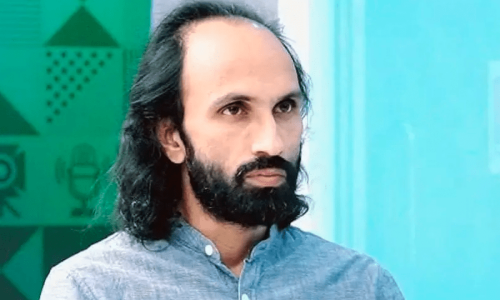ALMOST a year has gone by since citizens of various Arab nations rose up against long-entrenched dictatorial regimes but their frustration has not been assuaged. Tunisia, the birthplace of the Arab Spring, is the only nation which has seen an orderly transition to democracy with the election of a constituent assembly. Elsewhere there is tumult. Yemen's President Ali Abdullah Saleh has signed a deal, promising to step down after three decades in power but there is reason to be cautious. He has backtracked on promises to hand over power several times. Mr Saleh's stubbornness has brought his impoverished nation to the brink of civil war with hundreds killed since the protests began. Yemeni activists also question why the deal gives Mr Saleh immunity from prosecution. Meanwhile, Cairo's Tahrir Square is once again rife with protests. Dozens have been killed as the authorities have violently put down demonstrations. The protesters want a quicker transition to democracy and are suspicious of the military's intentions to tinker with the constitution. Field Marshal Hussein Tantawi, head of Egypt's ruling military council, has made overtures to the protesters yet many Egyptians feel the generals have no intention of handing over power.
The Gulf is also in flux. In Bahrain, the head of a government-appointed commission has said the sheikhdom's forces “used torture and excessive force against demonstrators” to smother the strategic nation's forgotten revolution. This has strengthened the opposition and human rights observers' claims that the Bahraini state discriminates against and is brutal towards its own people. The state now needs to back up claims it will punish those involved in abuses. The commission has also established there is no proof of Iranian involvement in fomenting protests, a strong indicator that the movement is homegrown. In Kuwait, several opposition activists were arrested recently after protesters stormed parliament and clashed with police last week. The opposition has called for the prime minister's dismissal and parliament's dissolution in the wake of a corruption scandal reportedly involving the premier — a royal — and several legislators.
Major questions remain about the direction of the Arab Spring. In nations where dictators have fallen (Egypt and Libya) it remains to be seen whether the people's democratic aspirations will be thwarted by a new set of autocrats. Yemen's and Syria's future is also uncertain given the tribal and sectarian divisions within those societies. As for the Gulf monarchies, they will put up the toughest resistance to change. One thing appears certain: much ground still needs to be covered before the Arab masses can reach their goal of establishing representative governments that ensure full social, political and economic rights.











































Dear visitor, the comments section is undergoing an overhaul and will return soon.